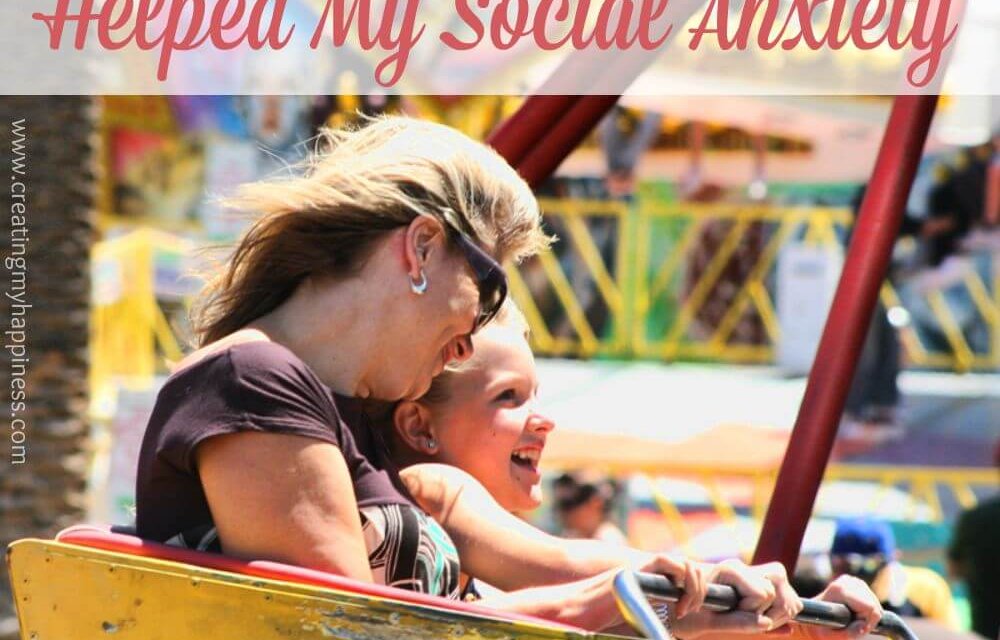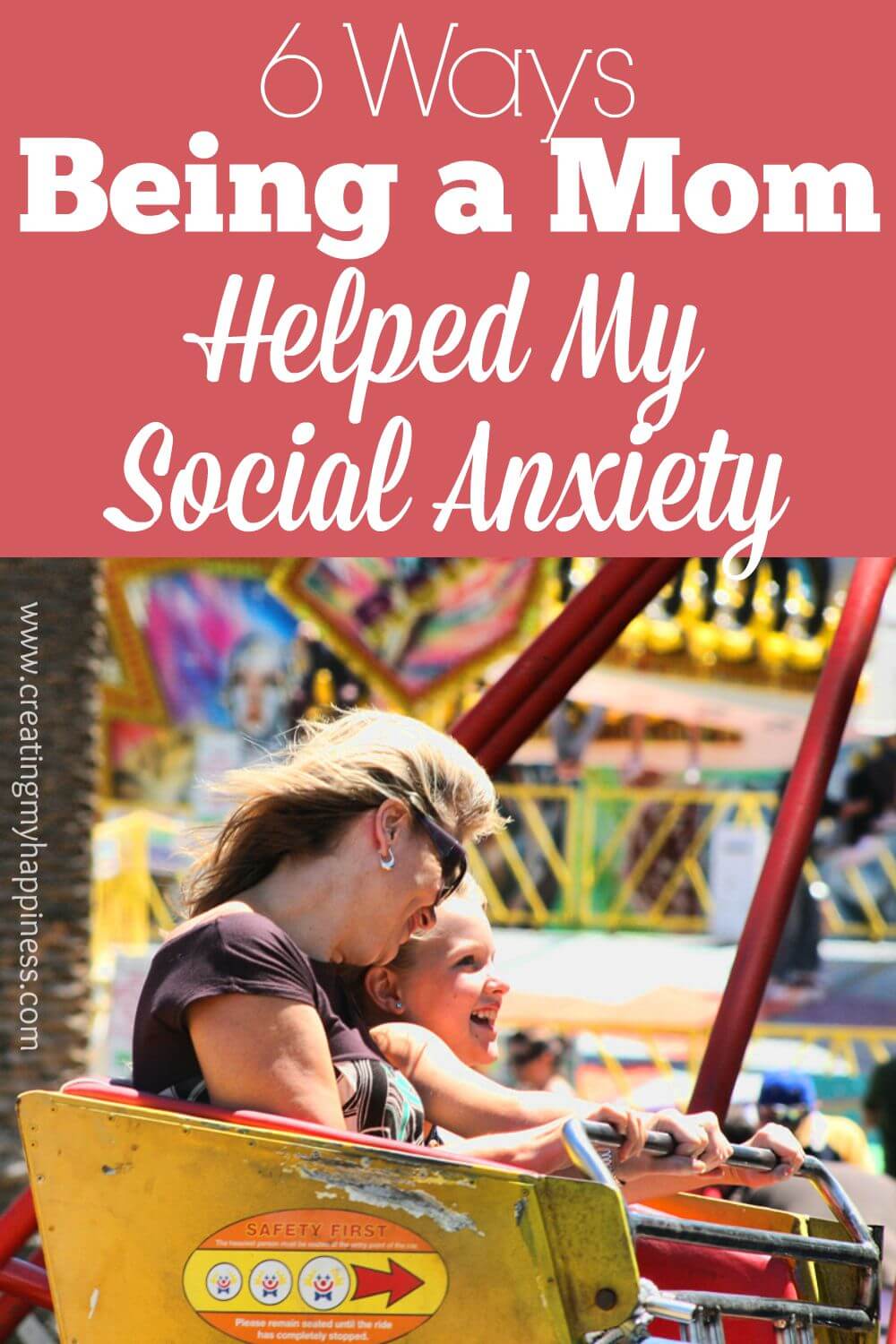What is Social Anxiety?
Social Anxiety is a very common disorder in which the sufferer feels intense nervousness and self-consciousness regarding social situations that someone without the disorder would ordinarily look forward to. For people like me with social anxiety parties, vacations, and other social situations can be downright terrifying. In fact, I have outright lied to get out of social situations.
From WebMD:
Many people with social anxiety disorder feel that there is “something wrong,” but don’t recognize their feeling as a sign of illness. Symptoms of social anxiety disorder can include:
- Intense anxiety in social situations.
- Avoidance of social situations.
- Physical symptoms of anxiety, including confusion, pounding heart, sweating, shaking, blushing, muscle tension, upset stomach, and diarrhea.
Children with this disorder may express their anxiety by crying, clinging to a parent, or throwing a tantrum.
Social Anxiety as Parent
In many ways being a parent, especially the parent of a newborn, can feed the isolation caused by social anxiety. Sleepless nights, odd schedules, and the general needs of a newborn can lead a new mom (or dad) to shut herself in and withdraw from even well-meaning friends and family. In many cases, childbirth can bring about or worsen social anxiety, which sometimes disguises itself as post-partum depression.
It Can Get Better
Though having a newborn can lead to isolation and greater anxiety, I’ve found that being a mom also helps my anxiety in many ways.
1. You have to suck it up. Having a kid means you do a lot of things you never thought you’d do. Just this weekend I found myself crawling into an inflatable obstacle course because Miss O wanted to give it a try. I was eternally grateful that she decided it was too difficult for her, but I would have sucked it up and gone through it if she’d wanted to.
2. Built-in companion. There is nothing more panic inducing for a social anxiety sufferer than facing a social event alone. Since Mr. O often works nights and weekends, my plus-1 is usually Miss O. Not only is she tons of fun, she is so darn cute that people can’t help but smile at her (and me). Her potty training also provides a nice break when the noise and busyness become overwhelming.
3. Women of a certain age. Ugh. I know. But I’ve found that now that I’m in my 30s most women around my age are also moms. And what they say is true; there is a special bond between mothers. We’ve been there, done that in ways that non-parents can’t understand, and that bond is a comfort to sufferers of social anxiety, who often feel out of place and like the odd-man-out.
4. When in doubt, ask about their kids. Going along with number 3, motherhood comes with an automatic go-to conversation starter. Moms love to talk about their kids. Period. I can’t explain how comforting it is to have that topic in my back pocket and know that I’ll have something to say in response. Of course non-parents can talk about kids, but before I was a mom I wasn’t a “kid person.” (I know that sounds weird coming from a teacher, but I teach middle school. Little kids were totally foreign to me.)
5. Forced socialization. Birthday parties, field trips, ice cream socials, etc. Being a parent is now a social event unto itself. These type of occasions would ordinarily send me straight to the internet to look up some not-too-obscure illness I could claim to have so I could spend the day on my couch instead. But now I’ve got an excited pre-schooler to contend with. Even if I had an actual illness she wouldn’t care, and my day wouldn’t be spent on the couch anyway, so I might as well go somewhere they’re going to serve me cake.
6. My anxiety is strong, but my maternal instinct is stronger. There is some evidence that social anxiety is genetic – in which case Miss O, my mini-me, is kind of screwed – but there is also a learned piece to the disorder. Children can learn to be anxious through negative experiences or those who are born with anxiety can learn to cope with and manage their disorder. I will do anything and everything in my power to be a good role model for my daughter so she doesn’t have to deal with the dread, panic, and self-doubt that come with social anxiety.
If you or someone you know are living with social anxiety there are places to go for help. Whether it’s through a strong, understanding support system, a trained mental health professional (who may or may not prescribe medication), therapy or support groups, social anxiety can be managed and even overcome.
For more information go to the Anxiety and Depression Association of America or the National Institute of Mental Health.
Linked up at ABFOL One Project at a Time and LWSL Thrifty Thursday







